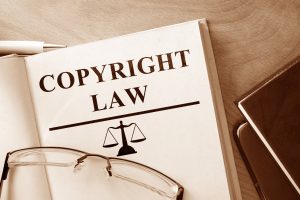Copyright is a form of intellectual property protection that gives the creator of an original work exclusive rights to control the use and distribution of their work. Copyright protection exists automatically from the moment the work is created, and it lasts for the lifetime of the creator plus 70 years after their death. In the case of works created as part of a commercial endeavor, the copyright lasts for 70 years after the end of the calendar year in which the work was first published.
One of the key principles of copyright law is the principle of originality, which states that in order for a work to be protected by copyright, it must be original and possess a minimum level of creativity. This means that works that are not original, such as ideas, facts, or information that is not original to the creator, are not eligible for protection under copyright law.
There are several exceptions to copyright in the UK, which allow for limited use of copyrighted works without the permission of the copyright owner. These exceptions include fair dealing for the purpose of criticism, review, quotation, news reporting, and teaching.
The responsibility for copyright enforcement lies with the copyright owner. If someone else uses a copyrighted work without the permission of the owner, the owner can take legal action to enforce their rights. This can include seeking an injunction from the court, which is a court order that requires the infringing party to stop using the copyrighted work. If the infringing party continues to use the work after an injunction has been granted, they may be held in contempt of court and face fines or imprisonment.
In addition to seeking an injunction, the copyright owner may also be able to seek damages from the infringing party. Damages are a monetary award that is meant to compensate the owner for any harm that they have suffered as a result of the infringement. The court may also award the owner their legal costs in some cases.
Another way to enforce your rights as a copyright owner is to seek a court order for the delivery up or destruction of infringing copies of your work. This is a court order that requires the infringing party to deliver up or destroy any infringing copies of the work.
There are several organizations in the UK that can provide assistance and support to copyright owners who are seeking to enforce their rights, including the Intellectual Property Office (IPO), the Copyright Licensing Agency (CLA), and the Federation Against Copyright Theft (FACT). The IPO is a government agency that provides information and guidance on all aspects of intellectual property law, including copyright. The CLA provides licenses to organizations and individuals who want to use copyrighted works, while the FACT is a not-for-profit organization that combats copyright infringement.
In conclusion, copyright is an important form of protection for original works, giving the creator control over the use and distribution of their work. By understanding the principles of copyright law, the exceptions to copyright, and the available remedies for enforcing your rights, you can better protect your original works and ensure that they are properly credited and compensated for their use.


